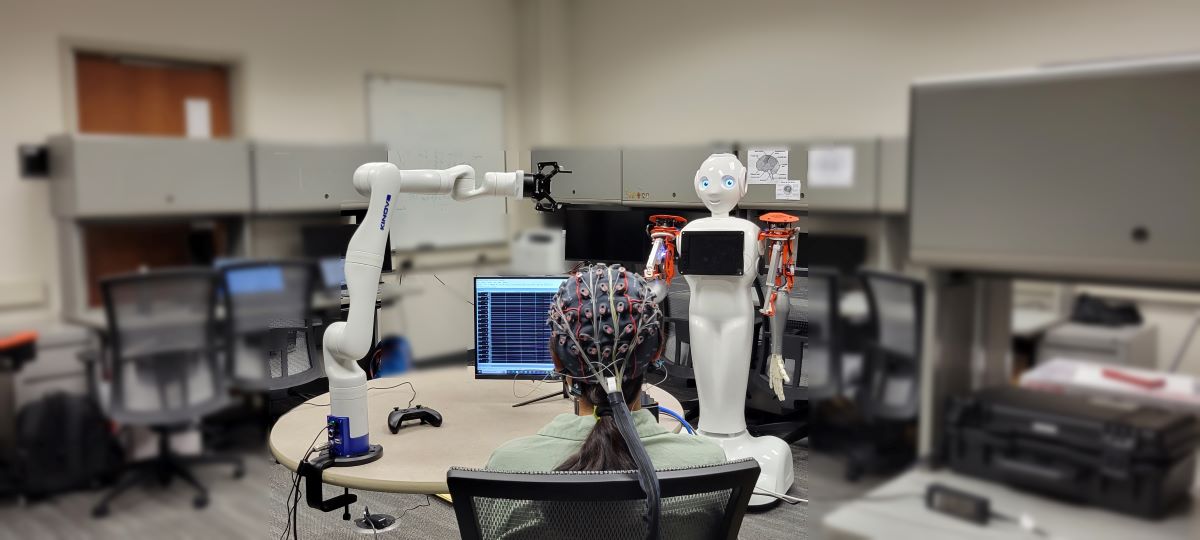Ramana Vinjamuri, associate professor in computer science and electrical engineering, recently received funding from the National Science Foundation (NSF) to support UMBC’s participation in a industry-university cooperative research center aiming to improve how we diagnose and treat people with conditions such as neurological disorders, brain injury, mental illness, limb loss, and paralysis. The center, called BRAIN (Building Reliable Advances and Innovations in Neurotechnology), brings together partners from academia, industry, and the regulatory and clinical communities to develop safe, effective, and affordable personalized neurotechnologies.
The need for such technologies is driven by an increase in survivable trauma and an aging population, Vinjamuri says. However, several challenges are holding back progress, including costly equipment, lagging standards for verifying the safety, efficacy, and reliability of devices, and an undersupply of physicians and engineers trained in emerging technologies.
The BRAIN Center aims to tackle these challenges by bringing together experts in a wide range of topics, from neural, cognitive, and rehabilitation engineering to neurorobotics, neuromodulation, and ethical artificial intelligence. As an Industry–University Cooperative Research Center (I/UCRC), it emphasizes academic research conducted jointly with innovative industry partners, and UMBC’s location will facilitate cooperation with northeast-based biomedical companies.
“BRAIN will become a neurotechnology hub by creating a pipeline from discoveries to solutions, while helping students, scientists, and engineers solve one of the greatest unmet medical and healthcare needs of our time,” Vinjamuri says.
UMBC’s participation will expand the center’s research into new areas such as artificial intelligence, neural signal processing, cyber-human systems, human-centered computing, neural imaging and stimulation, and virtual/augmented/mixed reality. Other UMBC researchers who will contribute to the center’s activities include Tulay Adali, Nilanjan Banerjee, Fow-sen Choa, Don Engel, Seung-Jun Kim, and Charles Nicholas. BRAIN is the second I/UCRC at UMBC, joining the Center for Accelerated Real Time Analytics (CARTA), which recently received a second round of funding.
Tags: COEIT, CSEE, Quick Posts, Research

